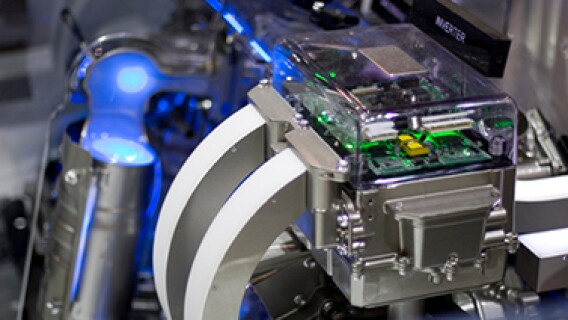In its furious rise to power over the last decade, Amazon (AMZN) has unapologetically laid waste to a lot of industries—and a lot of stock market sectors. Now, after Jeff Bezos’ company announced plans to design its own chip to use in its popular Echo devices, chip stocks could be Amazon’s next victim.
Amazon’s move into chip making—ostensibly an effort to reduce the cost of making its Echo voice-controlled speakers—likely has semiconductor companies like Nvidia (NVDA) and Intel (INTC) shaking in their boots. Or, at least it should, given Amazon’s track record for putting people out of business.
With that in mind, I thought it might be fun to break down how stocks in sectors impacted by Amazon have declined since AMZN stock started to take off in 2001. Here are a few examples:
Book Stocks
Barnes & Noble (BKS): -84% since 2006 peak
[text_ad use_post='129622']
There’s only one stock to measure, because Barnes & Noble is really the only major publicly traded bookstore left! That’s all Amazon, which made its name by selling books online, at cheaper prices, thus revolutionizing the book-buying industry and putting once-prominent bookstores like Borders out of business.
Since 2006, AMZN stock has doubled 37 times over, by the way.
Department Store Stocks
J.C. Penney (JCP): -96% since 2007 peak
Macy’s (M): -64% since 2015 peak
Sears Holdings (SHLD): -98.6% since 2007 peak
This list could be much longer, but you get the point. Books were just Amazon’s way into people’s living rooms; it has since become the largest e-commerce company in the world, shuttering malls across America and making brick-and-mortar department stores like J.C. Penney and Sears irrelevant. Those two stocks have fallen almost to zero. A decade ago, they were two of the best retail stocks you could buy.
Grocery Stocks
Last June, Amazon announced a deal to buy Whole Foods Market (WFM) for $13.7 billion. Here’s how shares of some of the larger grocers have performed in the eight months since.
Costco (COST): flat
Kroger (KR): -9.4%
Sprouts Farmers Market (SFM): +6.4%
During that time, the S&P 500 is up 9%, meaning all three grocery stocks have trailed the market—two of the three by a very wide margin. Though sales haven’t been meaningfully impacted by the Amazon-Whole Foods union yet, investors never want to be last one at the party. At the first sign of future weakness in a sector, Wall Street bails.
Chip Stocks the Next Grocery Stocks?
That’s what is happening with certain grocery stocks now. Could chip stocks be next if Amazon decides to expand its chip making beyond its own Echos? Perhaps. So far, it hasn’t registered: shares of NVDA, INTC and Advanced Micro Devices (AMD) were all holding up well as of this writing, which is different from the immediate panic seen in grocery stocks and food-heavy retail stocks like Target (TGT) and Wal-Mart (WMT) in the aftermath of the Amazon-Whole Foods deal.
But you should never underestimate the power of Amazon to ruthlessly destroy any industry in its way. It doesn’t always happen: most cloud computing stocks have continued to thrive in the era of Amazon Web Services. Because demand for semiconductors has never been stronger, chances are Nvidia, Advanced Micro Devices and the like will be just fine.
But their competition could get a lot stiffer if Amazon enters the fray. Time will tell what that means for chip stocks.
[author_ad]

